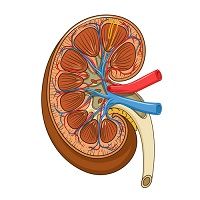Article
Drug Ineffective in Preventing Kidney Injury from Contrast Dye
Author(s):
The search for a drug to prevent kidney injuries from contrast media used in coronary angiography goes on. Trials of a new drug were disappointing.

The search for ways to protect patients’ kidneys from injury caused by contrast media has resulted in a promising drug known as CMX-2043.
But in CARIN, a study of this investigational drug presented today at the American College of Cardiology’s 65th Scientific Session & Expo, it showed no benefit—though the investigators said perhaps the dosing needs tweaking because it did not work.
“Contrast-induced acute kidney injury remains a really significant problem in this population,” said Deepak Bhatt, MD, MPH, executive director of the Interventional Cardiology Programs and Brigham and Women’s Hospital, and a professor of medicine at Harvard Medical School in Boston, MA.
The substances are needed when patients undergo coronary angiography.
The study recruited 361 patients from 31 medical centers in the US and Canada. All were patients who were previously scheduled for an angiogram and had a high likelihood of that they would need angioplasty because of a poor results on a stress test.
Some patients also had acute coronary syndrome. All were patients with kidney problems, either a sever loss of kidney function of mild to moderate loss of that function. Further, they had another risk factor such as diabetes, low blood pressure or being more than 75 years old.
The team excluded patients who were experiencing a heart attack, life-threatening arrhythmia or total kidney failure.
The patients were divided into four groups. They got a small dose, large dose or two small doses of CMX-2043, or a placebo. The doses ranged from 2.4mg/kg to 3.6mg/kg.
Researchers followed the subjects for 90 days, looking to see if they had a reduced rate of kidney injury. They also looked at the incidence of major adverse cardiac and kidney events, reduction in heart damage and heart attacks. But to their disappointment, all four groups had similar rates of kidney injury, 18.6 % for placebo 25.6 % for a small dose, 25.3% for a large dose and 18.9% for two small doses.
Standard measure like serum creatinine and glomerular filtration rate tests all showed decreased kidney function.
The drug is supposed to work by stabilizing cell membranes and y having an antioxidant affect, Bhatt said.
Looking for good news in the study, Bhatt said at least it showed that such a study was possible. “The challenge is to find a drug that actually works,” he said.
It is possible, he added that larger or more frequent doses of the drug might be effective.
The investigational drug is made by Ischemix and the company funded the trial.





